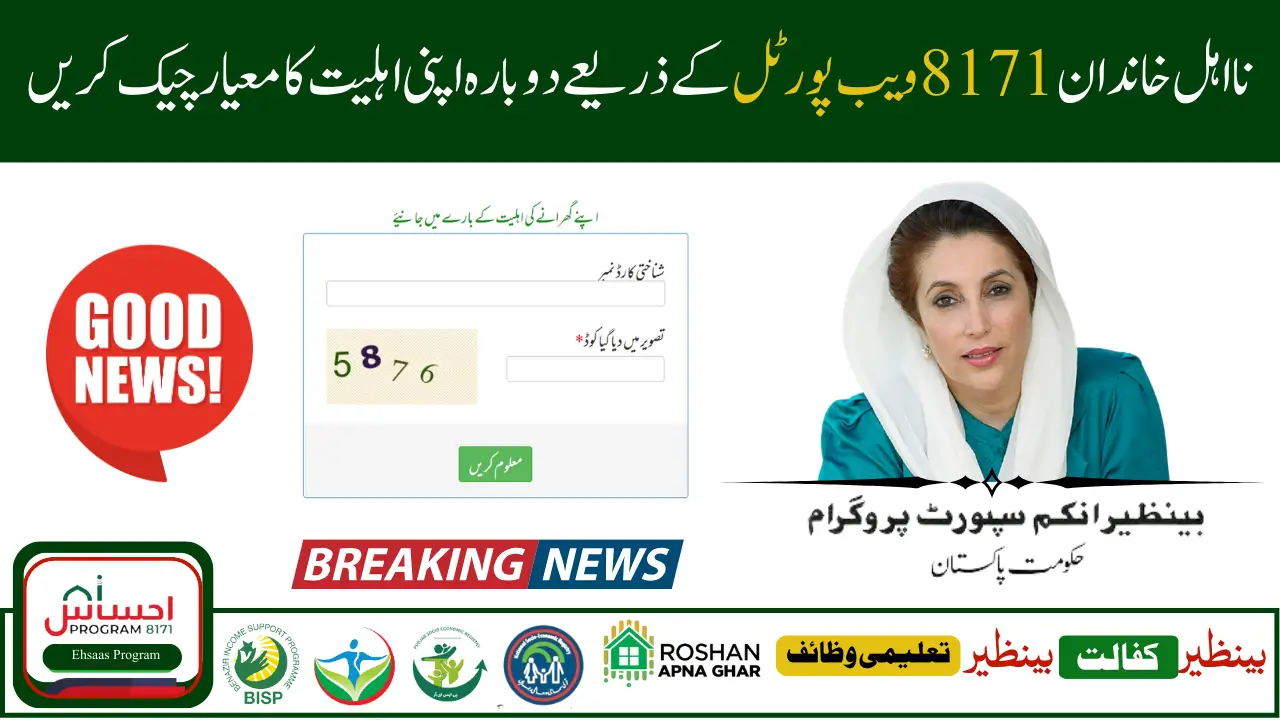The Benazir Income Support Programme (BISP) has introduced a new update to its 8171 web portal, allowing registered beneficiaries to check their eligibility and receive payments directly into their bank accounts. This initiative marks a significant step towards transparency, digital accessibility, and financial convenience for millions of low-income families across Pakistan.
Background of the BISP 8171 initiative
The BISP was launched in 2008 as a federal welfare program aimed at providing financial assistance to vulnerable households. Over the years, the program has expanded, covering millions of families living below the poverty line. With rising inflation and economic challenges, digital solutions like the 8171 web portal have become crucial in streamlining financial aid delivery. The government has also taken steps to minimize corruption and leakage by digitizing records and payment transfers.
How the 8171 web portal works
The 8171 portal provides beneficiaries with an easy-to-use online platform where they can check their eligibility status by entering their CNIC number. Once verified, registered families are informed about their payment status and transfer updates. In this latest development, beneficiaries can now link their bank accounts to receive funds directly, removing the need to visit payment centers or face long queues.
This move reduces delays and ensures that families can access funds more securely. The portal also allows users to confirm whether their payment has been processed, providing real-time updates that were previously unavailable.
Direct payments and financial inclusion
Transferring payments directly to bank accounts is not only a convenience but also part of Pakistan’s broader push for financial inclusion. A large number of BISP beneficiaries previously operated outside the formal banking system. By linking aid disbursement with accounts, the program encourages beneficiaries to open and use bank accounts, which could help them access other financial services in the future.
This development also strengthens accountability. Digital records provide clear payment trails, making it harder for intermediaries to exploit or withhold funds from eligible families.
Challenges and opportunities
While the digital shift is promising, some challenges remain. Limited internet access in rural areas, low digital literacy, and banking infrastructure gaps may hinder smooth adoption for many families. To address these, the government has partnered with several banks and mobile wallet services to expand reach and provide alternative solutions for those without traditional accounts.
Experts believe that as mobile banking grows in Pakistan, programs like BISP 8171 could play a crucial role in bringing millions of unbanked citizens into the financial mainstream. This would not only make welfare distribution more efficient but also contribute to broader economic stability.
Future outlook
The 8171 web portal is a major milestone in Pakistan’s digital governance journey. By enabling direct payments into bank accounts, the government aims to ensure quicker, safer, and more transparent financial support for underprivileged families. If successful, the system could serve as a model for other welfare programs in the country. Continued investment in digital infrastructure and awareness campaigns will be key to ensuring its long-term success.
Also Read More: New Book Banks to Provide Free Textbooks in Islamabad Schools

